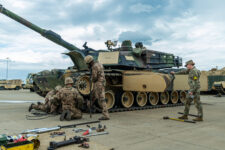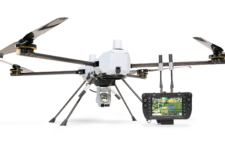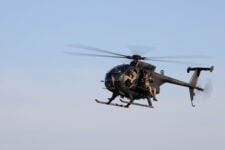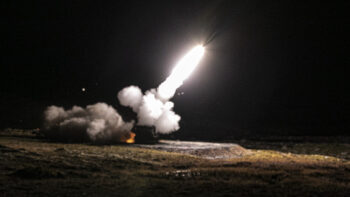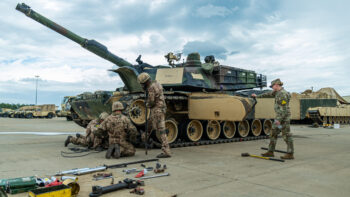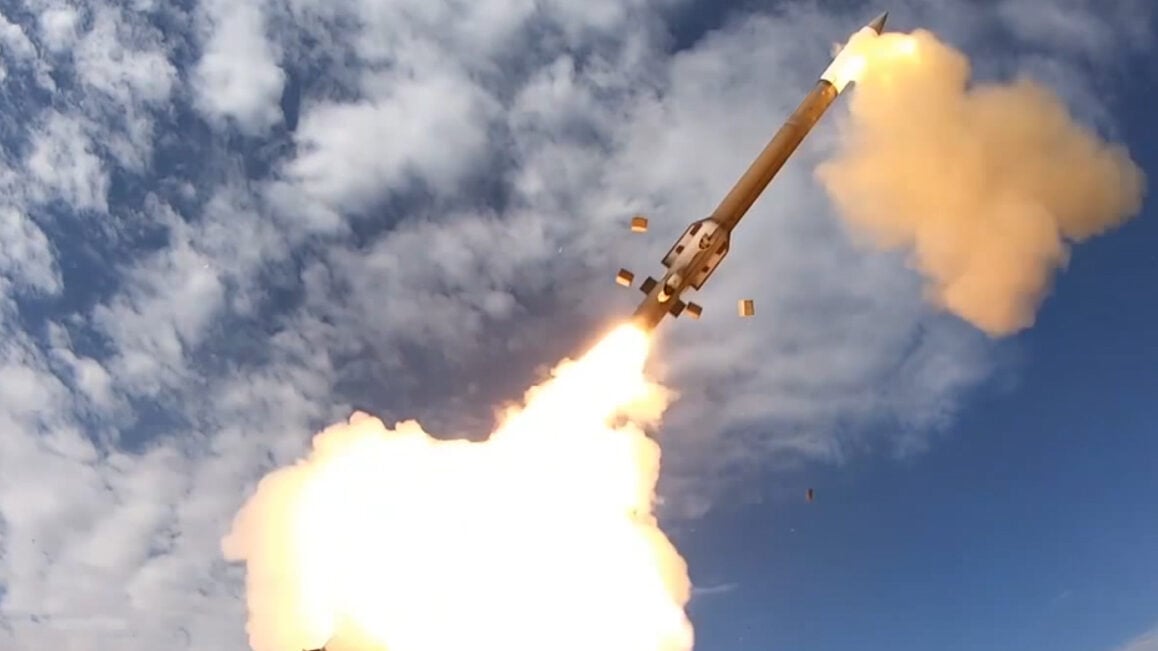
A PAC-3 missile is launched during the recent successful Integrated Battle Command System (IBCS) flight test at White Sands Missile Range. (Darrell Ames/US Army)
WASHINGTON: The US Army announced Thursday that Northrop Grumman has won a $1.4 billion contract to begin initial low-rate production and full-rate production for the service’s future integrated missile defense system.
The Army awarded the defense giant the five-year production contract for its Integrated Battle Command System, which aims to link disparate missile defense assets to bolster command and control, and ultimately plug into the joint force’s Joint All-Domain Command and Control effort.
“This award represents the first significant competition for this major defense acquisition program since the 2009 award of the engineering and manufacturing development contract,” the Army press release said.
The Army said the system is “a keystone” of all-domain operations, in which the service must confront adversaries across all the warfighting domains.
IBCS “will provide a decisive battlefield advantage through weapon and sensor integration and a common mission-command system across all domains, delivering an integrated fires capability to the warfighter while improving battle space awareness, decision timing and protection against threats in complex integrated attack scenarios,” the Army statement said.
According to the Army release, Northrop Grumman will develop 160 systems for the Army and foreign partners. The defense giant will increase IBCS production after a full-rate production decision is finalized in fiscal 2023. The contract was awarded by Program Executive Office Missiles and Space.
The Army received two bids for the contract, though the service didn’t disclose the name of the losing bidder. Work is expected to be completed by Dec. 22, 2026.
Over the summer, IBCS downed a cruise missile in a test that included electronic warfare attacks on radars and tied together data from multiple different platforms from other services, included the F-35 and PAC-3 anti-missile battery.
The Integrated Battle Command System began operational testing in September. In a speech in August, Lt. Gen. Daniel Karbler, commander of Army Space and MIssile Defense Command, stressed the importance of IBCS while citing a 200 percent in ballistic missile testing by adversaries in the last 15 years.
Karbler also warned of adversaries growing electronic warfare, artificial intelligence and directed-energy capabilities.
“Our adversaries are growing increasingly bold in their hostile acts of using ballistic missiles cruise missiles and UAS. They’re crucially bold in their conduct of irresponsible space activities. It means the Joint Force will demand more from the Army’s Space and Missile defense capabilities and expertise going forward.”


